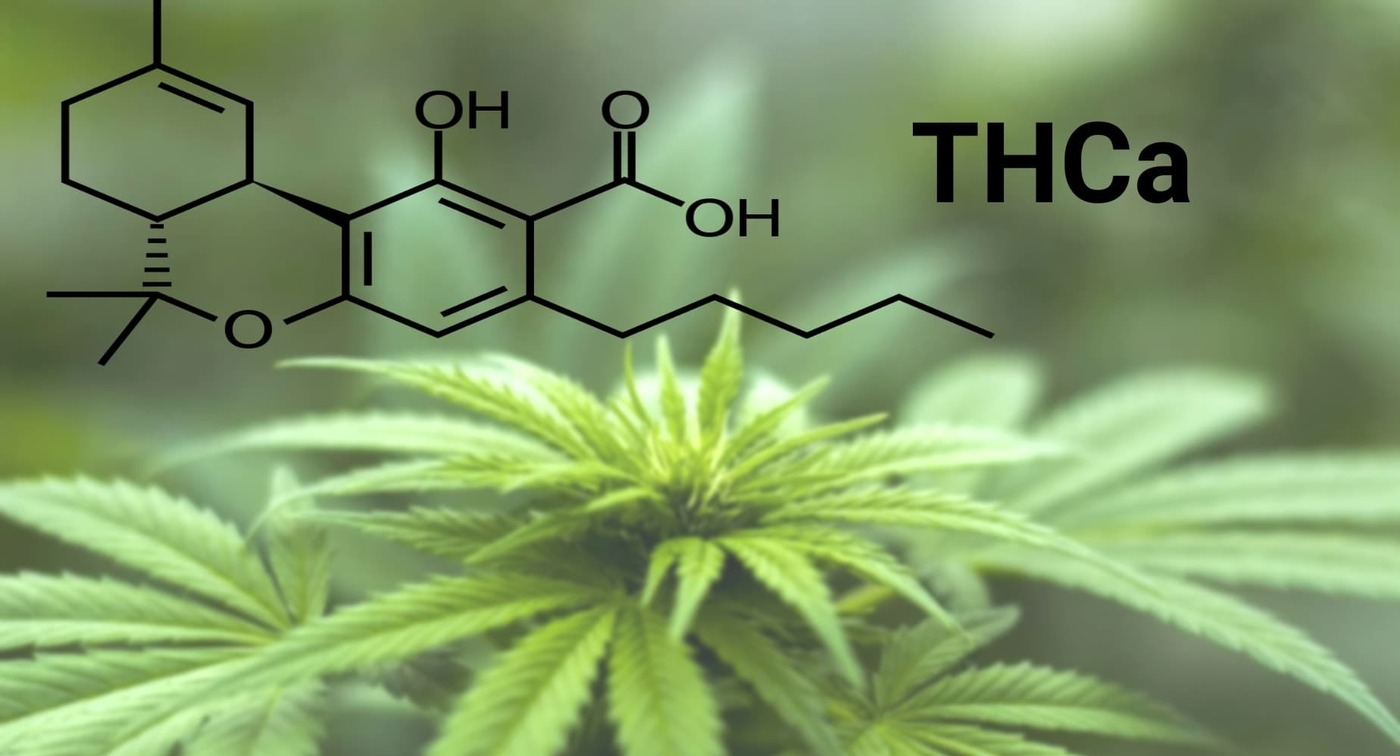THCa, or tetrahydrocannabinolic acid, is a relatively unknown compound found in the cannabis plant. Research on this cannabinoid is quite promising, despite the fact that it’s still mostly uncharted territory.
Everyone’s heard of THC (tetrahydrocannabinol) but most people don’t know about its precursor compound, THCa, which is found only in raw cannabis plants. As the buds dry, cure, or when heat is applied, THCa eventually turns into THC. This process – when THCa loses its carboxyl acid group – is known as decarboxylation.
Contrary to popular belief, THC actually isn’t found in fresh flowers. If you’ve ever bought cannabis from a dispensary that sends their bud out for lab-testing, you may have noticed that somewhere on the package it will have the “THC content” listed. It’s labeled this way because, presumably, the consumer is going to smoke, vape, or otherwise heat the product in some way. However, it would be more accurate to label it as “THCa content”, since the flowers are raw when purchased.
For many years, this acid compound has been largely ignored and the central focus was on THC and finding ways to vilify it. Thankfully now, we’re starting to make great strides in the way of cannabis research and medical researchers are starting to look at the unique benefits of multiple cannabinoids, including THCa.
What The Science Tells Us About THCa
As of now, research is still in the early stages and there haven’t been enough studies to determine with full certainty what THCa can treat and its level of effectiveness. But there is some preliminary data and quite a bit of anecdotal evidence indicating that it may have a critical part in the future of medical cannabis. Some of these early studies suggest this cannabinoid (along with others in some cases) could possibly be helpful in treating the following ailments:
Self-reported use of THCa describes success in treating insomnia, muscle spasms, and pain. This is only anecdotal evidence though and more studies will have to be conducted before we can substantiate any of these claims.
How to Utilize this Cannabinoid
To reiterate, THCa is only found in raw cannabis material that’s fresh (not dry) and hasn’t been exposed to any kind of heat. Although it’s a less frequently discussed cannabinoid for the time being, you can find some tinctures and oils that incorporate extracted THCa.
Aside from that, the most efficient way to harness THCa is through your diet. You can take the raw buds and make juice, smoothies, salads, dressings, and cold sauces. However you would eat any other leafy green vegetable such spinach, kale, or swiss chards, the same can be done with your cannabis leaves.
They can also be finely chopped and used as an herb just like parsley, oregano, dill, or basil. This would not only add a rich flavor profile to your dish, but it would certainly improve the nutritional content as well. Store it in the crisper drawer with your other salads and veggies.
Final Thoughts
Although research is still in its infancy, these preliminary studies show that THCa can play a pivotal role in treating different medical conditions. This brings an entirely new focus on the benefits of consuming raw cannabis. Have you used THCa extracts? What about raw cannabis juicing or smoothies? If so, we’d love to hear your thoughts on the subject. Drop us a line in the comment section!
Affiliate relationship: Some of the companies listed here have agreed to support CBD Testers by donating a portion of the sales coming from us, for the development and maintenance of our site. Thank you!
